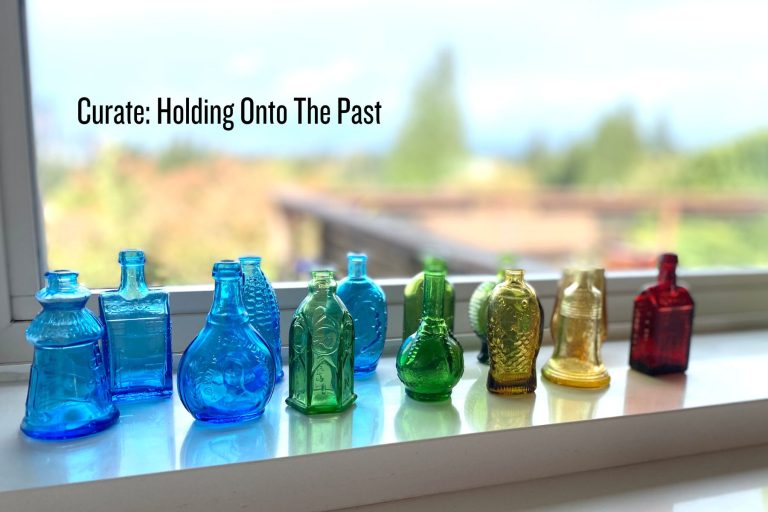Method For: Starting Small
As an Amazon Associate and member of other affiliate programs, I earn from qualifying purchases.
Watching my mother cross the finish line of her first triathlon made me feel like crap. I should mention she was 65, I was 38, she had invited me to do the event with her and I had declined. I declined because how on earth could I do it? I had 3 kids under the age of 8, a full time job that included travel on a monthly basis and literally zero time to spare. I could barely manage to make it to the gym once a week, let alone train for the 3 different sports involved in a triathlon. Boo.
But that day, after hugging her and posing for pictures I decided to figure out how to do it myself. If I wanted to train for my own triathlon I needed to reprioritize, better understand how I was spending my time and work out how to do more (and less!) with my 168 hours of allotted time each week. Along this journey I learned one of the most effective time management tactics that I continue to use today for anything new I am attempting to fit into my schedule. This strategy works regardless of what you are making time for: fitness, cooking, friends, reading, nature bathing, the new priority may be different but the tactic is the same: start small.
Factor Out Intimidation
Starting something new is a double-edged sword of intimidation for busy people. There is the daunting task of making time for the new thing and also the intimidating nature of the new thing itself. Starting small helps to eliminate intimidation on both fronts. In my case fitting in hours of weekly triathlon training felt impossible. But getting up 10 minutes earlier each day did not. I hadn’t truly swam in years (FYI swimming does not count if you are doing it in sunglasses!) and the thought of swimming a half mile in the open water was terrifying. But doing one lap of a crawl stroke without stopping? Doable! Try this mindset with anything new you would like to do: cooking a meal after work, reading a book, getting out into nature. It works universally!
Build On Success
When you start small you are more likely to be successful and then you can build on that success. Think of it as taking one stair step at a time to reach the next level versus trying to jump once from the ground. Taking the stairs allows for a favorable outcome and the ability to look behind you and reflect before taking the next step. Jumping from the ground carries large risk of failure, injury and loss of momentum. When you are able to make 10 minutes of new time in your day you feel successful and also have learned where to look for the next 10 minutes. When you swim one lap in the pool without stopping you know what it feels like and are able to layer on another lap with confidence. By starting small you are building momentum and momentum is a powerful weapon to wield on the journey to realizing your goal.
Shave Time
Starting small makes a new routine feel possible to fit into your extremely-full calendar. Finding an hour feels hard, but could you shave 5 minutes from one of the bigger buckets taking up your time to make room for your new priority? (If you don’t know what your big time categories are work through the time exercise in last week’s blog.) When I started my training my biggest time buckets were sleep, work and kid time. If I shaved 10 minutes from each of those 3 categories daily it added up to over 3 hours for the week, a good starting place for training. If 10 minutes every day feels like too much, start with only a few days and see how that works before layering on. Shaving time vs trying to carve out big chunks has the added benefit of a lower profile. People (your colleagues, your kids, your spouse, yourself) are unlikely to feel inconvenienced by your ‘new schedule’ if they don’t really feel the change. And if they haven’t felt inconvenienced they are more likely to be supportive as you build on your success by finding more time.
Lots Of Small = Really Big
When you add up the very small changes you are implementing in your time management and time investment they add up to something pretty big, even though it may not seem like it at first. You may question if 10 minutes each day is going to make a difference in your life but the very fact that the change is barely noticeable is the reason it is possible in the first place. It works like compounding interest along your journey and before you know it the big prize is in sight and when you look back it was the small steps that compounded on top of each other and landed you at the finish. Back to the swimming portion of my triathlon training, which is the example I cite most often because it was the hardest and most intimidating for me, from both time and skill perspectives. I went from not being able to swim 1 lap (50 yards) in the pool without stopping to swimming a half mile (880 yards) in the open water in 7 months. I started with one 60 minute swim clinic and ended with 3 training swims each week. I built out the time priority plan and my swim skill and stamina over the 7 months by starting small. And the accomplishment was really big.
I’ve used my triathlon journey as the example for how to start small when you are trying to manage change in your life and fit new priorities into a calendar that may seem to have no open spaces. I felt shame when my mom crossed that finish line because I had declined the invitation to join her but reflecting on it now I realize that moment was when I started to think differently about my time. It may not be possible to hop off the hamster wheel of your life but if you want to make a change the best way to start is small.












Method Seattle Comment Policy
We welcome relevant and respectful comments. Off-topic comments may be removed.